Old Testament
Genesis Exodus Leviticus Numbers Deuteronomy Joshua Judges Ruth 1 Samuel 2 Samuel 1 Kings 2 Kings 1 Chronicles 2 Chronicles Ezra Nehemiah Esther Job Psalms Proverbs Ecclesiastes Song of Solomon Isaiah Jeremiah Lamentations Ezekiel Daniel Hosea Joel Amos Obadiah Jonah Micah Nahum Habakkuk Zephaniah Haggai Zechariah MalachiChapter
Genesis 1 Genesis 2 Genesis 3 Genesis 4 Genesis 5 Genesis 6 Genesis 7 Genesis 8 Genesis 9 Genesis 10 Genesis 11 Genesis 12 Genesis 13 Genesis 14 Genesis 15 Genesis 16 Genesis 17 Genesis 18 Genesis 19 Genesis 20 Genesis 21 Genesis 22 Genesis 23 Genesis 24 Genesis 25 Genesis 26 Genesis 27 Genesis 28 Genesis 29 Genesis 30 Genesis 31 Genesis 32 Genesis 33 Genesis 34 Genesis 35 Genesis 36 Genesis 37 Genesis 38 Genesis 39 Genesis 40 Genesis 41 Genesis 42 Genesis 43 Genesis 44 Genesis 45 Genesis 46 Genesis 47 Genesis 48 Genesis 49 Genesis 50Verse
Genesis 49:1 Genesis 49:2 Genesis 49:3 Genesis 49:4 Genesis 49:5 Genesis 49:6 Genesis 49:7 Genesis 49:8 Genesis 49:9 Genesis 49:10 Genesis 49:11 Genesis 49:12 Genesis 49:13 Genesis 49:14 Genesis 49:15 Genesis 49:16 Genesis 49:17 Genesis 49:18 Genesis 49:19 Genesis 49:20 Genesis 49:21 Genesis 49:22 Genesis 49:23 Genesis 49:24 Genesis 49:25 Genesis 49:26 Genesis 49:27 Genesis 49:28 Genesis 49:29 Genesis 49:30 Genesis 49:31 Genesis 49:32 Genesis 49:33



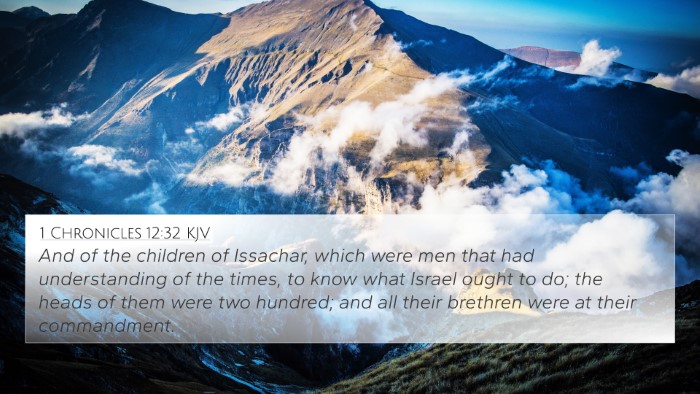
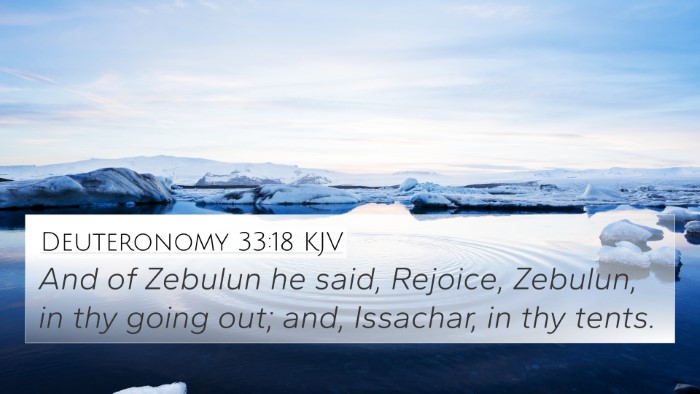
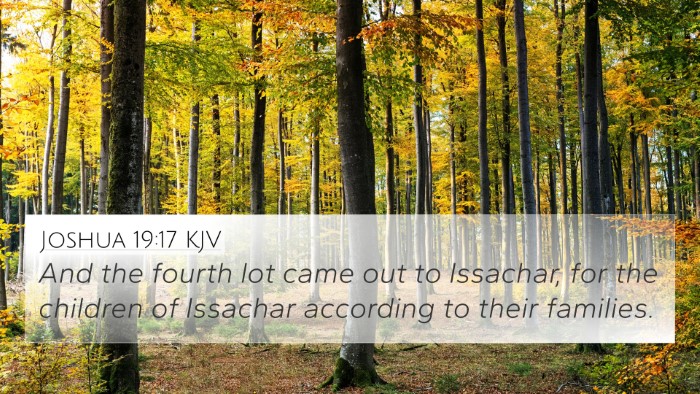
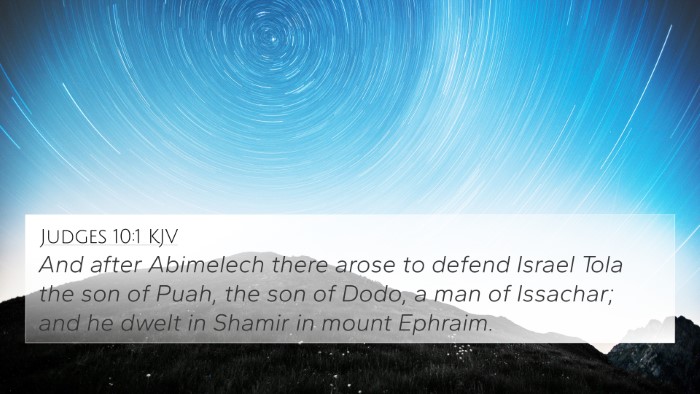
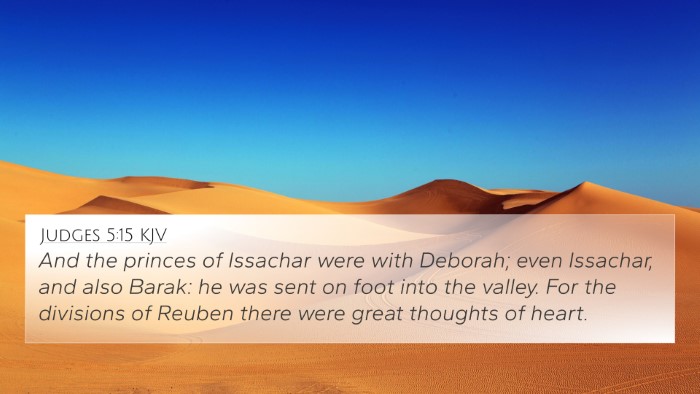
In examining Genesis 49:14, we draw on the insights of renowned biblical scholars such as Matthew Henry, Albert Barnes, and Adam Clarke. Each commentary provides a unique perspective on the metaphorical language used by Jacob and the implications for the tribe of Issachar.
Matthew Henry's Commentary
Matthew Henry describes Issachar as a tribe that would be known for its labor. The imagery of the donkey reflects strength and a willingness to bear burdens. Henry suggests that the tribe’s identity centers around servitude yet possesses the strength to support others, indicating a spiritually noble character amidst physical labor.
Albert Barnes' Commentary
Albert Barnes emphasizes the theme of submission and service that echoes throughout this verse. He interprets the phrase “between the sheepfolds” as indicating that Issachar would find itself in a humble position but uniformly essential in the pastoral economy of Israel. Barnes concludes that the tribe's choice of lifestyle would involve a risk of ease leading to discomfort in situations of injustice.
Adam Clarke's Commentary
Adam Clarke reflects on Issachar’s role as not purely agricultural but also as a tribe involved in understanding and interpreting the law. Clarke’s interpretation draws a link between the strength of Issachar and the necessity of intellect in comprehending divine statutes, thus engaging them spiritually and intellectually.